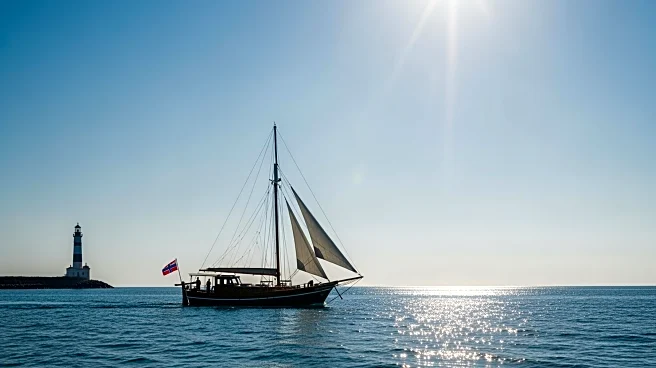What's Happening?
Senator Rand Paul, a Republican from Kentucky, has publicly criticized recent U.S. military strikes on boats in the Caribbean suspected of being involved in drug trafficking. During an appearance on 'Meet
the Press,' Paul expressed his disapproval, stating that such actions 'go against all of our tradition.' He emphasized the need for the U.S. to have concrete evidence and to know the identities of individuals before taking military action. Paul highlighted that the targeted boats were located 2,000 miles away, questioning the sufficiency of the evidence that led to the assumption of their involvement in drug-running activities.
Why It's Important?
Senator Paul's comments bring attention to the ongoing debate over the U.S. military's role in international drug enforcement and the legal and ethical implications of preemptive strikes. His stance underscores concerns about the potential for overreach and the importance of adhering to traditional legal standards and due process. This issue is significant as it touches on U.S. foreign policy, military ethics, and the balance between national security and civil liberties. The criticism could influence public opinion and policy discussions regarding the U.S. approach to combating drug trafficking and the use of military force in international waters.
What's Next?
The debate over the appropriateness of these strikes is likely to continue, with potential implications for U.S. military policy and international relations. Lawmakers and policymakers may be prompted to review the legal frameworks governing military actions against non-state actors in international waters. Additionally, there could be calls for increased transparency and accountability in military operations to ensure compliance with international law and U.S. traditions. Stakeholders, including human rights organizations and international allies, may weigh in on the issue, potentially influencing future policy decisions.










